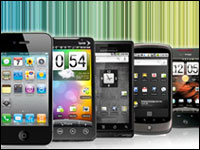
Increasingly, CRM vendors — and their customers — are recognizing the value of applying mobile technologies to the self-service piece of a CRM operations. In response, more and more vendors are rolling out new applications for companies that wish to target this emerging, but rapidly growing, demand point.
These applications range in functionality and sophistication, but their end goal is the same: to take advantage of the ever-increasing reliance people have on their mobile devices to cement loyalty and, hopefully, enhance internal productivity.
New Products on the Market
One example is offered by Jacada, which earlier this year introduced its beta app, Jacada Mobile Agent. It enables companies to create self-service capabilities for their mobile device-sporting customers. They also have the option of connecting with a live agent to complete an interaction.
Interactive Intelligence Group recently released Interaction Mobilizer, a software platform that allows organizations to deploy customer service applications on multiple mobile operating systems, devices and social media websites. The system lets customers request a call-back from a service representative and be updated periodically as to when the call-back will occur. Future versions will support chat, text messaging, and video.
nanoRep launched an optimized mobile version of its self-service, instant-answer helpdesk widget earlier this year. It is accessible from an iOS or Android device.
Zendesk recently unveiled a new mobile customer portal compatible with the iPhone, Android, BlackBerry and Windows Phone platforms.
The Sales Piece
Plugging mobile technologies into the sales piece of CRM is a common deployment — and for good reason.
Organizations can significantly increase returns on their CRM investments by adding mobile for salespeople, according to a recent Nucleus Research survey of CRM decision makers. Among the 223 CRM decision makers surveyed, there was an average productivity gain of 14.6 percent from mobile capabilities.
Salespeople have used mobile devices for some time, the report notes. However, the 14.6 percent productivity increase was driven by the development of custom, device-specific applications that take advantage of individual form factors.
Eventually the productivity enhancements that mobile CRM brings to sales will be quantified for the self-service use case too, predicted Nucleus Research Vice President Rebecca Wettemann.
Her reasoning? For starters, it just makes sense.
“We are already seeing, in general, greater productivity for mobile applications for an important reason,” she told CRM Buyer. “Customers can enter information on their own time when they have time to do it and are actively thinking about the issue.”
For the time being, though, sales is the CRM module that will see the greatest benefit in productivity, she said. “Moving forward, I would say that will change to self-service, especially as technologies such as geolocation improve.”
Also, customers are becoming more and more comfortable using their smartphones as a substitute computer instead of just a communications device, added Wettemann.
“You see that with the move by Starbucks to accept mobile payments. People are just more comfortable using their devices for different tasks.”
























































